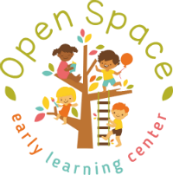Early Preschool
In our Early Preschool classroom, teachers encourage independence, social relationships and the individual interests of all children. The teacher uses the interests observed to plan projects and lessons. A typical day for early preschoolers involves self-directed guided play, small group activities, circle time, reading books, singing songs, art experiences, writing and literary activities, science activities, outdoor and indoor gross motor play, dramatic play and block play opportunities.
Children in our Early Preschool classroom range from 2 to 4 years of age. We look at many signs of developmental readiness when deciding whether a child and their family can benefit from the transition to a more independent and engaging curriculum. Some of these signs include, but are not limited to: ability to self-feed and begin drinking in a lidless cup, ability to express their wants and needs, comfortable walking independently, growing tolerance for frustration and increasing ability to regulate emotions, showing increased desire for independence, growing more and more curious about the world, and entering beginning stages of cooperative play. When your child shows signs of readiness, our Early Preschool classroom is equipped with a child-sized bathroom to start potty training.
The teachers in Early Preschool are ready, willing and able to really listen and engage their students in topics that are relevant and interesting. Our project-based learning curriculum is rooted in the emergent approach of designing learning environments and opportunities that are based on what the students are wanting to learn about. Teachers do this through a fine-tuned and ongoing process of observation, recording, and assessment. Learning opportunities are designed to be engaging, relevant and above all, exciting!
In addition to focusing on “school readiness,” the Early preschool curriculum focuses on sharing space, working cooperatively with others, and treating peers with kindness and compassion. Students learn about the world around them and their place in the world by doing, touching, painting, reading, singing, dancing, writing and exploring.

